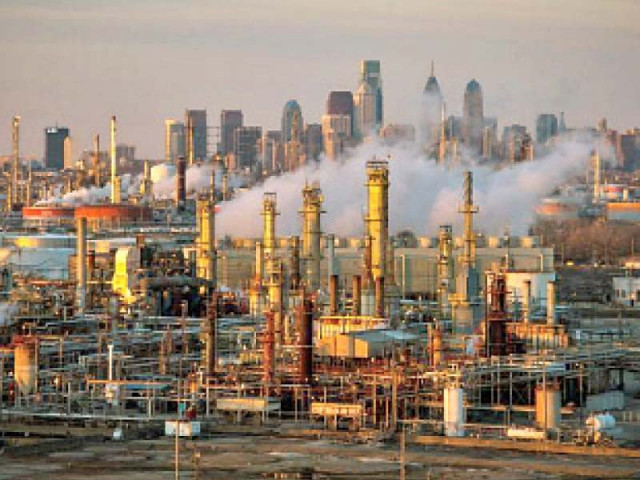Petro problems pile up
Govt’s inaction stalls solutions as it fears loss of political capital

The government often chooses to defer the resolution of pressing issues, hoping that over time the problem will be resolved spontaneously or through unforeseen circumstances.
They shy away from taking bold decisions, fearing the loss of political capital and public disapproval. However, history has demonstrated that this approach is counterproductive, leading to the worsening of issues at hand and ultimately causing significant harm to the electorate.
For the last six months, representatives from the petroleum industry, analysts and experts have been warning of a looming crisis in the sector. The oil industry had already been facing difficulties due to the Letters of Credit (LC) opening and other issues.
Unfortunately, despite these warnings, no significant action was taken, and the situation has continued to deteriorate.
One of the key issues contributing to the crisis is the significant devaluation of Pakistani rupee. The exchange rate has plummeted in recent times, with the rupee falling from Rs260 against the US dollar at the end of February to almost Rs279 at present. The unofficial rate is believed to be even higher.
This stands in stark contrast to the same time last year when the rupee was trading at Rs179 against the US dollar. The currency’s sharp decline has resulted in substantial losses for the petroleum industry, encompassing both oil marketing companies (OMCs) and refineries. There exists a mechanism for the oil industry to recover losses by making adjustments in the in-land freight equalisation margin (IFEM), which is part of the final pump prices. However, reports suggest that the government is not implementing it fully. Rather, the authorities are adopting a phased approach, and even then, not all of the cost is being passed on to the consumer. The rationale behind this approach appears to be to avoid any further increase in fuel prices at petrol pumps. Despite the current challenges facing the petroleum industry, policymakers appear to be disengaged from finding a solution to the issue.
As Pakistani rupee continues to weaken, and with no viable solution in sight, the exchange losses incurred by the oil industry may grow. This would only exacerbate the already significant financial pressures facing the sector.
Apart from the issue of exchange rate, the petroleum industry is facing obstacles related to the procurement of petroleum products and crude oil due to the difficulties in opening LCs and obtaining their confirmation from foreign banks, as indicated earlier.
This challenge might intensify following Pakistan’s recent ratings downgrade.
On top of this, the petroleum sector is also grappling with declining sales, caused by both expensive prices at petrol pumps and a slow-down in economic activity.
A 19% drop in sales of petroleum products has been observed by the OMCs in the first eight months of current financial year, as compared to the same period of last year, as per data of the Oil Companies Advisory Council (OCAC).
Furthermore, the State Bank of Pakistan’s recent increase in interest rates is expected to have a negative impact on the industry’s bottom line as this is going to increase their finance costs.
The petroleum industry is facing an assortment of difficulties that have created a perfect storm. As a result, it is not surprising that some companies are reportedly abstaining from importing fuel to avert substantial exchange losses and LC-related complications. If this trend continues, it may potentially result in a fuel crisis.
It appears that the government is either unaware or indifferent to the potential repercussions of the petroleum industry’s collapse for the broader economy and the general population. If the industry experiences a downturn and the supply chain of refined petroleum products such as petrol and diesel is disrupted, the impact will reverberate across multiple sectors due to the central role fuel plays in the functioning of economy.
The smooth operation of nearly all industries, from transportation and logistics to FMCGs, relies on the uninterrupted supply of fuel.
This time around, the agriculture sector may be significantly affected if a fuel shortage happens in the coming weeks, as diesel demand typically increases during the wheat harvesting season that is quickly approaching.
A fuel shortage during a period of heightened demand can lead to hoarding and black marketing, causing an increase in the cost of doing business. Businesses may pass on these costs to consumers by raising prices, thereby contributing to inflation. Inevitably, it is the consumers who will bear the brunt of this situation.
If the government is truly dedicated to shielding consumers from the adverse effects of inflation, it must identify more effective solutions, rather than resorting to measures that may ultimately harm the economy and inflict hardship upon the population.
One potential approach could involve the creation of a transparent system that would allow for adjustments in future prices, safeguarding the industry from substantial foreign exchange losses.
It is imperative that the authorities take decisive action to address the issues plaguing the petroleum industry, such as LC complications, a mechanism for recovering foreign exchange losses, and other long-standing obstacles that have hindered the industry’s progress.
These include enhancing banking facilities to make up for the rupee’s devaluation and higher commodity prices in international markets, finding solution to the furnace oil issue, and introducing business-friendly policies to encourage investment.
THE WRITER IS A CORPORATE CONSULTANT WHO WRITES ON SUBJECTS OF BUSINESS AND ECONOMY


















COMMENTS
Comments are moderated and generally will be posted if they are on-topic and not abusive.
For more information, please see our Comments FAQ